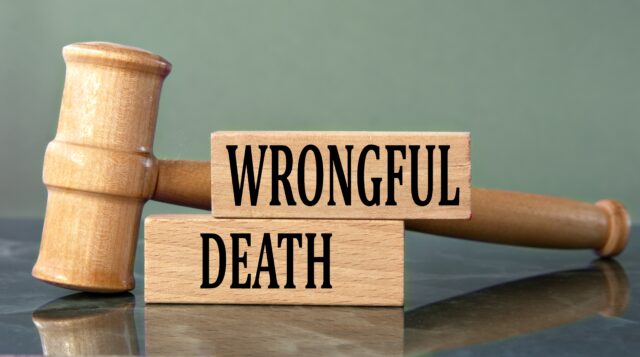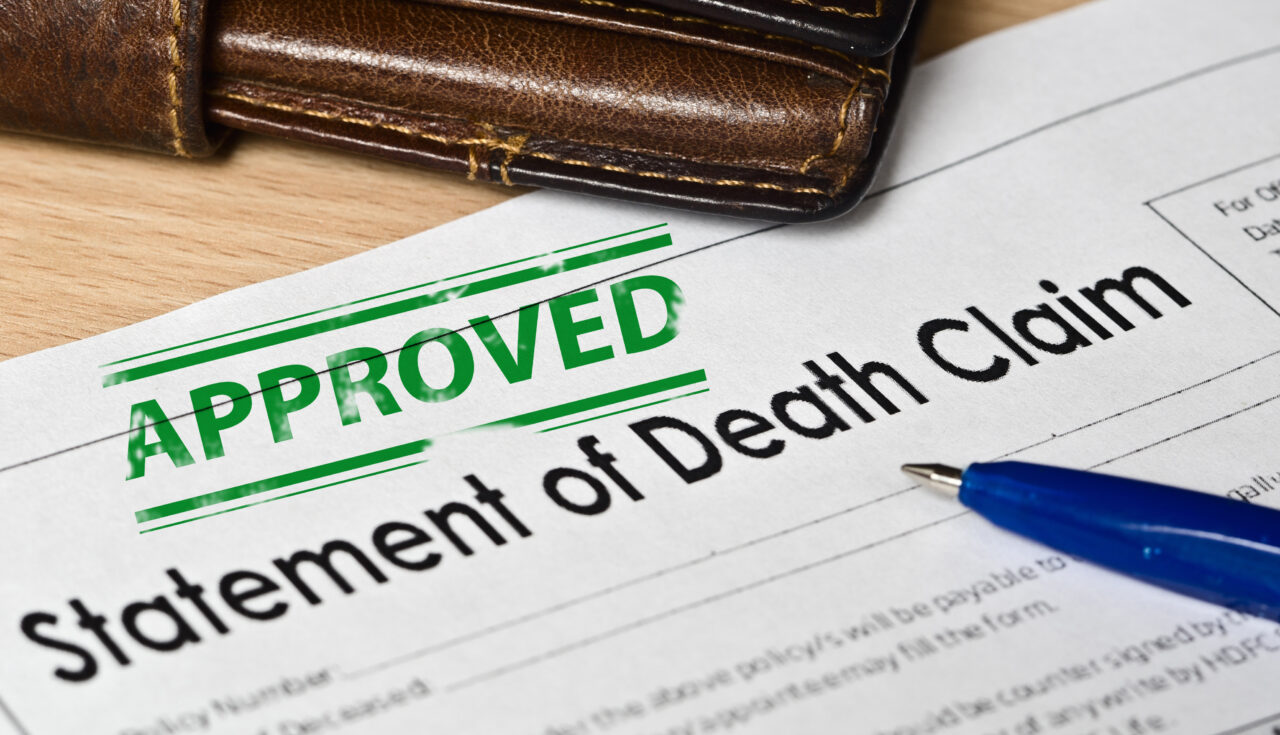A wrongful death case occurs when someone dies due to the negligent, reckless, or intentional actions of another person or entity. This type of claim allows surviving family members, such as spouses, children, or parents, to recover compensation for their losses.
In a wrongful death claim, the compensation you can recover includes economic damages, non-economic damages, and sometimes punitive damages, depending on the jurisdiction.
Economic damages cover financial losses, such as funeral expenses, medical bills, and loss of income or financial support from the deceased. Non-economic damages include emotional pain, suffering, and loss of companionship. These address the emotional toll of death. In cases of extreme negligence or intentional harm, punitive damages may be available to punish the at-fault party and deter similar actions.
An experienced and compassionate Fort Smith wrongful death lawyer can handle the legal process for you by investigating the case, gathering evidence, and filing the necessary paperwork. They will negotiate with insurance companies or litigate in court to ensure you receive fair compensation. Their experience can help relieve some of the emotional burden and maximize your chances of a successful outcome.
Common Categories of Wrongful Death Cases

Wrongful death cases arise from a wide range of incidents where someone’s death results from the negligent or intentional actions of another. The most common categories of wrongful death cases include:
- Car Accidents: If a driver is negligent, such as by speeding, driving under the influence, or failing to follow traffic laws, they may be held responsible for a fatal accident.
- Medical Malpractice: When healthcare professionals fail to provide the appropriate care or make errors during treatment, leading to a patient’s death, this can result in a wrongful death claim. Examples include misdiagnosis, surgical errors, or improper medication.
- Workplace Accidents: Employees who die due to unsafe working conditions, lack of proper training, or employer negligence may have a wrongful death claim. This can include construction accidents, industrial incidents, or exposure to hazardous materials.
- Defective Products: If a defective product causes someone’s death, the manufacturer or seller may be liable. This can include malfunctioning vehicles, unsafe medical devices, or poorly designed household products.
Each case is unique, and a wrongful death lawyer can determine liability and pursue compensation for the family’s losses.
Types of Recoverable Damages in a Wrongful Death Case
In a wrongful death claim or lawsuit, surviving family members can recover compensation for the damages they have suffered as a result of their losses. The main goal of compensation is to help family members recover financially and emotionally from the untimely death of their loved one.
Economic Damages
Economic damages are those that can be measured in monetary terms. These damages aim to compensate for the financial losses the surviving family members experience due to the death.
First, the family can recover compensation for the costs associated with the funeral, burial, and any related expenses. These costs can be substantial, so recovering these expenses can help ease the financial burden on the surviving family members.
If the deceased was the primary breadwinner, the family may be entitled to compensation for lost income. This includes earnings, benefits, and other sources of financial support the deceased would have contributed to the household.
If the deceased person received medical treatment before passing away due to the incident, the family can recover the medical expenses incurred. This can include hospital bills, surgery costs, and other related healthcare expenses.
In some cases, family members may be entitled to compensation for the loss of services the deceased provided, such as childcare, housekeeping, or home maintenance.
Non-Economic Damages
Non-economic damages are more difficult to quantify as they relate to the emotional and psychological effects of the death. These damages are intended to compensate for the pain and suffering resulting from the loss.
First, surviving family members can recover compensation for the emotional pain and suffering they experienced due to the sudden loss. This may include feelings of grief, depression, and anxiety. The family may also be compensated for the loss of companionship, guidance, and affection that the deceased provided. This includes the emotional effect of losing a spouse, parent, or child.
In cases where the surviving spouse loses the companionship and intimacy of their partner, they may seek compensation for loss of consortium. This includes both emotional and physical loss.
In some cases, families might receive punitive damages, which punish the at-fault party for particularly reckless or malicious behavior. Not all wrongful death cases qualify for punitive damages, but they can significantly increase the total amount of compensation.
Ultimately, the compensation awarded depends on the specific circumstances of the case and the laws in the state where the claim is filed.
Proving the Elements of a Wrongful Death Case
To win a wrongful death case, the plaintiff (usually the personal representative of the deceased’s estate or a surviving family member) must prove certain legal elements. These elements form the foundation of the case, and specific types of evidence are used to establish each one.
Legal Elements of a Wrongful Death Claim
- Duty of Care: The defendant (the person being sued) must have had a duty to act responsibly and avoid causing harm to others. For example, drivers have a duty to obey all traffic laws and drive safely. If the defendant owed such a duty to the deceased, the first element is satisfied.
- Breach of Duty: The next element is proving that the defendant breached this duty of care. This may happen if the defendant was negligent or reckless. For example, if a driver ran a red light and caused an accident, they would have breached their duty of care to others on the road.
- Causation: The plaintiff must prove that the defendant’s breach of duty directly caused the death. This means showing a clear link between the defendant’s actions and the fatal incident. For instance, if a car crash resulted in injuries that later led to the deceased’s death, the plaintiff must prove the accident was the direct cause.
- Damages: Finally, the plaintiff must demonstrate that the death caused damages, such as financial loss, emotional suffering, or other consequences. The family must show that they have suffered as a result of the death, whether through lost income, lost companionship, or pain and suffering.
Types of Evidence
To satisfy these elements, different types of evidence may be used, including:
- Medical Records: These documents help to establish the cause of death. Autopsy reports can be especially useful in proving causation.
- Witness Testimony: Eyewitnesses can provide crucial accounts of the incident, such as what the defendant did and how the deceased died. Testimony from medical professionals, accident reconstruction experts, or family members can support various elements of the claim.
- Police Reports: If the incident involved law enforcement (such as in car accidents), police reports can provide an official record of the event and any evidence of negligence or recklessness, like traffic violations.
- Photographs and Videos: Photos of the scene or video footage can show the circumstances leading to the death, helping to establish the defendant’s liability.
- Expert Testimony: Expert witnesses, like accident reconstruction specialists or medical experts, can explain technical details, like how the defendant’s actions caused the death or the financial effects of the loss.
Each piece of evidence is vital in proving the key legal elements of a wrongful death claim or lawsuit.
How a Lawyer Can Benefit a Wrongful Death Case
Settling or litigating a wrongful death case involves several key steps, and it can be a complicated and emotional process for surviving family members. A skilled wrongful death attorney can guide you through each stage, ensuring that your legal rights are protected and that you have the best chance of securing fair compensation.
The first step is to meet with a wrongful death attorney, who will review the details of the case. During this consultation, the attorney will evaluate whether the death resulted from someone else’s negligence, recklessness, or intentional harm. The lawyer will also assess the potential for success in your case and explain your legal options. This is also when you will discuss the damages you may be entitled to recover, such as funeral expenses, loss of income, and pain and suffering.
Once retained, the attorney will begin an investigation to gather evidence supporting your claim. This can include obtaining police reports, interviewing witnesses, reviewing medical records, and consulting experts (such as medical professionals or accident reconstruction specialists). A thorough investigation is key to proving negligence or wrongful conduct, as well as establishing the amount of damages the surviving family members should receive.
If a fair settlement cannot be reached through negotiation, the attorney will file a formal wrongful death lawsuit in the appropriate court. This lawsuit will outline the defendant’s actions, the damages sought, and the legal basis for the claim. The defendant will then have an opportunity to respond, and both parties may engage in discovery (the process of exchanging information relevant to the case).
Many wrongful death cases are settled before going to trial. The attorney will negotiate with the defendant’s insurance company or legal team to reach a settlement that fairly compensates the surviving family members. A skilled attorney will know how to advocate for the best possible offer based on the evidence and the financial needs of the family.
If a settlement cannot be reached, the case may go to trial. The attorney will present the evidence and argue the case in front of a judge or jury. During the trial, both sides will present their arguments, and the jury will determine the outcome. A skilled wrongful death attorney will prepare your case thoroughly to ensure the strongest possible presentation in court.
A wrongful death attorney handles all of these steps, allowing you to focus on healing while ensuring that your legal rights are fully represented. With their experience, an attorney can maximize the chances of a favorable outcome in either a settlement or trial.
Deciding Whether to Settle or Litigate a Wrongful Death Case
Deciding whether to settle or litigate a wrongful death case is a critical choice that depends on several factors. The decision involves weighing the potential benefits and risks of both options.

One of the most important factors in deciding whether to settle or litigate is the strength of your case. If you have strong, clear evidence that proves the defendant’s negligence or wrongful actions caused the death, you may be in a good position to win at trial. However, if the evidence is weak or unclear, a settlement may be the safer option to secure compensation rather than risk a potentially unfavorable trial outcome.
Sometimes, the defendant or their insurance company may be open to settling the case outside of court. If they offer a fair settlement that covers your damages (such as funeral costs, loss of income, and emotional suffering), it may be in your best interest to accept it and avoid the lengthy process of a trial. However, if the offer is too low or the defendant is unwilling to negotiate fairly, litigation may be the better choice.
Wrongful death cases are emotionally charged, and the process can be stressful. Trials can take months or even years, prolonging the grief and emotional toll on the family. If the surviving family members are looking for a quicker resolution and are satisfied with a fair settlement, settling may be the better option. On the other hand, if the financial damages are significant, or if you feel that a trial is necessary to hold the defendant accountable, litigation may provide greater compensation in the long run.
Settling a case provides a guaranteed payout, but the amount may be less than what you can potentially win at trial. A skilled attorney can assess whether the settlement offer is fair and if pursuing litigation may result in a higher award. However, litigation involves costs and uncertainties, so it’s essential to weigh the potential for higher compensation against the risks of trial.
An experienced wrongful death attorney will be key in guiding you through this decision. They can provide an honest assessment of the strengths and weaknesses of your case and offer advice on whether settling or litigating is the best option based on you and your family’s specific circumstances.
Call a Wrongful Death Attorney Today
If you recently lost a loved one because of someone else’s negligent or otherwise wrongful act, you need experienced legal counsel in your corner right away. A knowledgeable Fort Smith personal injury attorney will take the appropriate legal steps to maximize the compensation you and your family receive at this difficult time.

